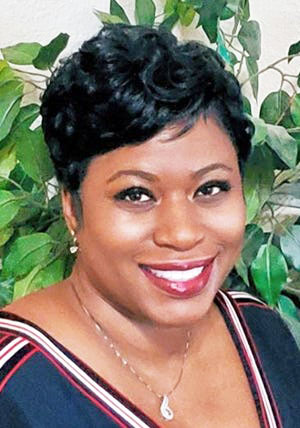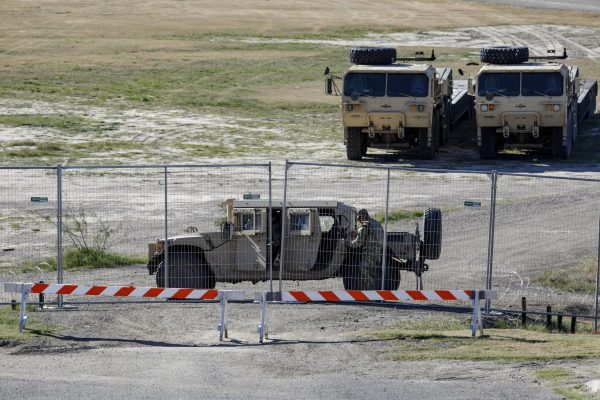Dr. Chiquesha Davis earns award for excellence in end of life care

Photo Courtesy of Dr. Chiquesha Davis
Dr. Chiquesha Davis, Tarleton’s Nursing Department Head, recieved the 2020 End-of-Life Nursing Education Consortium award.
Tarleton State University’s Dr. Chiquesha Davis was named one of the 2020 End-of-Life Nursing Education Consortium (ELNEC) award winners. Dr. Davis has been Tarleton’s Nursing Department Head for just over six months now and has a passion for leading students to success.
“I have a passion for first and foremost the nursing students and the nursing population, and to be department head was one of the key aspects [in my decision] in coming [to Tarleton to teach]. I would like to be able to show my leadership as well as be able to instill [knowledge] into other faculty [members] to build student success. I love to teach, and being able to build students and to see them grow and to see those students go for professional growth is one of my passions,” Dr. Davis said.
The ELNEC award is a monumental success for Dr. Davis, and to receive the award in the middle of the COVID-19 pandemic is evidence of her dedication to her field.
“This award is national and international, so to compare it on just an organizational stand point [to other awards I’ve won in the past] it’s larger. The ELNEC is known all over, it’s known in the United States as well as in other countries. So that is tremendous to me to be a recipient of this award on a national and international level. It’s very prestigious in my opinion,” Dr. Davis said.
“The ELNEC has a huge range of teaching components, but I didn’t know that when I was in the middle of my doctoral project in 2018 and 2019 that [my research] would be instrumental for the pandemic. I didn’t know that teaching nursing students how to deal with end of life issues would be so instrumental, because during this pandemic [2020] was really truly the year of the nurse,” Dr. Davis said.
Dr. Davis uses the ELNEC teaching modules to prepare nursing students to give end of life care for patients of all types.
“The students that I have impacted are now having to deal with patients who are COVID-19 patients. They are having to deal with patients passing without family at the bedside or family via skype call. So, translating the research [I did in] my project truly prepared the students for [this pandemic]. I can’t express it more, it’s awesome [that my research helped these students],” Dr. Davis said.
Dr. Davis has found that the ELNEC modules give students the ability to gain empathy for patients when empathy would sometimes be hard to find.
“You have to have empathy. One of my professors told me at one point that you can’t teach empathy but I beg to differ. At some point in life you will have empathy only because of a situation that is given to you. You will also want to be sympathetic so what I would recommend is to grasp upon some type of platform that will give you that empathy. [Finding] some type of platform or grounding on that empathetic peak is crucial [for dealing with patient deaths],” Dr. Davis said. “The ELNEC modules do that so well. I highly recommend that every university add them into their curriculum so that the nursing students can have that [exposure] before they even become licensed professionals.”
Dr. Davis’ research and passion for helping students prepare for end of life patients started when she began her career as an oncology nurse.
“My passion was actually from [my experience as an] oncology nurse. I’ve been an oncology nurse for almost over 17 years and that is actually where I started. So, my doctoral project was dealing with the end of life nursing education program. When you talk about the doctor of nursing practice it’s translating research and that’s exactly what I have done,” Dr. Davis said.
As an oncology nurse, Dr. Davis experienced first hand how it felt to be underprepared and have patients pass away.
“I started as an intern and an extern on an oncology unit so [patient death] was something I’d always encountered, but I had never had the true education to handle the stress or the anxiety of a dying patient. I can recall having three actively dying patients one day and I just couldn’t take it. I went into the breakroom and balled because I had three patients that were going to pass within the next few hours and the compassion fatigue was so heavy on me,” Dr. Davis said.
“When I became an educator I actually taught on the unit that I left after being an oncology nurse for years. Then when I had students that would come on the unit for their very first day and have to send someone down to the morgue or do some type of comfort care, I didn’t want them to experience what I experienced because they weren’t prepared for that type of environment. So, that’s why I started wanting to teach the students what I have learned from the ELNEC modules,” Dr. Davis said.
Some nurses, like Dr. Davis are drawn to fields that have more patient deaths than other fields. Dr. Davis wants to encourage students who are looking to pursue a career in a field that deals with patient death to do it.
“I say go for it. It is a fulfilling career, you get to see your patients grow. It is a rewarding feeling to take care of someone until the end. It’s not anything to be afraid of. Especially in these times,” Dr. Davis said. “Ultimately you want that caring person there. When someone is in their final moments you want someone who is there that can care for you through the end. I used to tell my students that I had to put on my Wonder Woman suit [for the patients and their families].
“[Oncology] was not a chosen field for me, it was something that I was drawn to. I had the opportunity present itself to me and I took it. You get these patients who come in all the time and you learn who they are, you see them in their ups you see them in their downs and you become their family away from family. I enjoyed that when I was a patient care tech and a nurse. I believe that is what drew me to [oncology],” Dr. Davis said.





Belinda Deal • Mar 22, 2021 at 9:43 AM
Congratulations on the 2020 End-of-Life Nursing Education Consortium (ELNEC) award! It is so wonderful to hear of all your success and how you are influencing others!
Belinda Deal, PhD, RN, CNE
MSN Education Program Director
Sandra Petersen • Feb 25, 2021 at 8:21 AM
We are so proud of you and your accomplishments, Dr. Davis! Thank you for representing us as an excellent “Agent of Change” and a role model for future DNPs and nurses everywhere!
Sandra Petersen, DNP
Professor & Director
UT Tyler DNP Program
Tyler, Texas